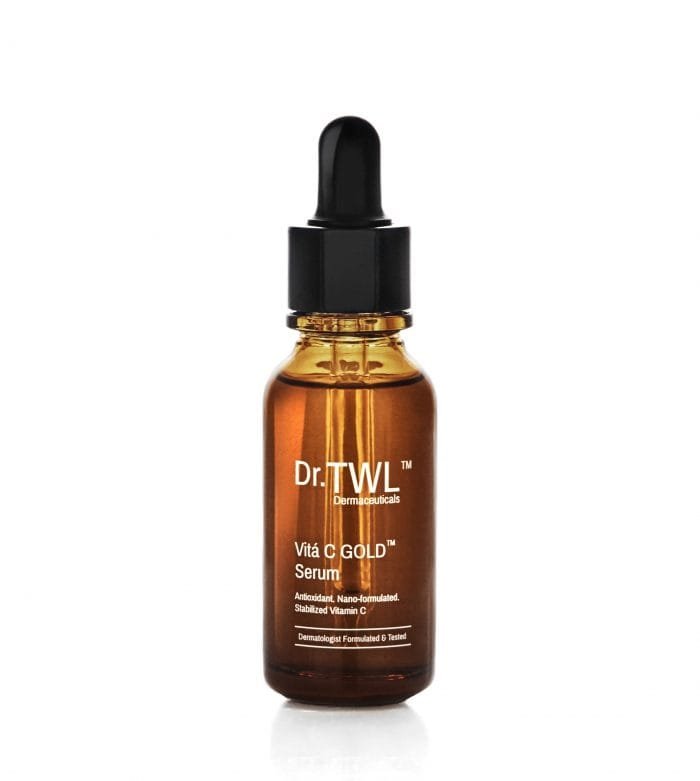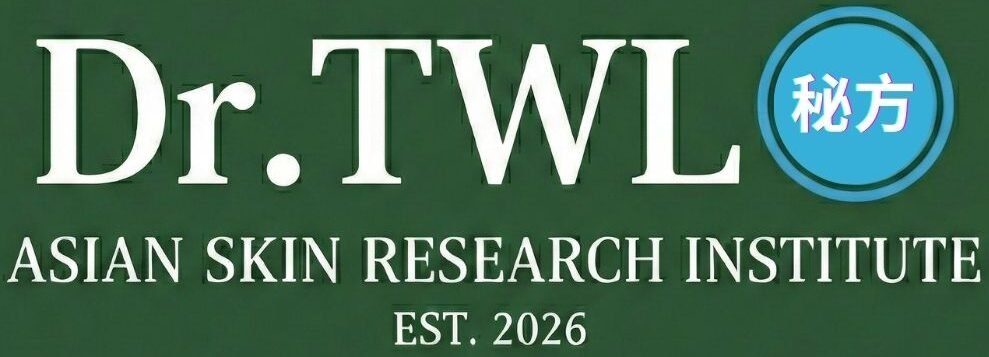For many people, blackheads, whiteheads and pimples are a normal part of puberty. However, for some, acne can be a stubborn problem that occurs well beyond their teenage years. This is known as Hormonal Acne. Hormonal acne are characterized by painful and unpleasant pimples. It most commonly appears in adult women ages 20 to 40. In this article, I will be sharing about the science behind hormonal acne and the recommended treatment option.

Book an appointment with our skincare pharmacy for your customised acne skincare routine.
Our in-house home acne treatment protocol option for hormonal acne designed by an accredited dermatologist now available via our pharmacy. WhatsApp us at +65 9728 6734 today!
Dr. Teo Wan Lin is an accredited dermatologist and an expert on cosmeceutical skincare research and development. She is the author of “Skincare Bible – Dermatologist’s Tips for Cosmeceutical Skincare” which was published July 2019 by Barnes & Noble, Baker & Taylor and Apple Books and available in bookstores islandwide from January 2020. She heads up Dr.TWL Dermaceuticals, a specialist cosmeceutical skincare line with evidence-based active ingredients for anti-ageing and skin health. Its subsidiaries, the Pi-Cosmeceutical Custom Makeup Lab and the Conscious Mask Bar are part of the Conscious Concept Pharmacy launched in December 2019, featuring environmentally sustainable makeup and skincare materials. In this article, she shares about hormonal acne.
@drtwlderma Best Acne Treatment Singapore Dermatologist Recommended What is the best treatment option for hormonal acne? Our in-house home acne treatment protocol option for hormonal acne designed by an accredited dermatologist now available via our pharmacy. Whatsapp us today. sg derma Sg skin clinic Sg skin Routine Sg skin Tik Tok Sg skincare glowing Sg skincare girl #pimples #pimplepatches #pimplepatch #skincareroutine #skincareactives #skincareactives101 #skincareingredients #skincareingredient #singaporedoctor #dermatologist #singaporedoctors #skincare #dermatologist #tiktoksg🇸🇬 #skincareroutine #skincaretips #skincare101 #skincareproduct #dermdoctor #learningsfun #learnontiktok #pimplepop #acnetreatment #acneproneskin ♬ Kpop-Cool beauty(995209) – NOBB-D
1. What is hormonal acne?
Hormonal acne is characterised by flare ups during specific periods in the menstrual cycle. Individuals with hormonal acne often present with large painful cysts around the chin and jawline area. Mild hormonal acne is often a normal physiological occurence. However, more severe forms may be directly related to an underlying gynecological problem known as polycystic ovarian syndrome (PCOS). In Polycystic Ovarian Syndrome. Other symptoms may include irregular menstrual cycles, excessive facial hair growth, weight gain in addition to adult acne.
2. Who suffers from hormonal acne?
Sufferers of hormonal acne tend to be adult females who find that the acne persists beyond puberty. In my knowledge, there has not been any clinical epidemiological study performed by dermatologists on the incidences of hormonal acne. However, in my practice, out of 10 adult women that I see, a good 60 or 70% would report an influence of their menstrual cycle on their acne.
3. When should I see a dermatologist for my hormonal acne?
Finally, at the earliest onset of a flare up consisting of more than 5 pimples a month should warrant a visit to a dermatologist. This is especially if one does not have a history of having acne. The earlier the start of treatment, the lower the chances of morbidity from scarring. Acne has severe psychosocial effects as well. Dermatologists recommend that acne treatment should be commenced earliest as persistent acne flare ups cause emotional distress.
@drteowanlin #question from @Dr. Teo Wan Lin #hormonalacne #hormonalacnejourney #medicaltiktok #tiktokderm #learningisfun #healthy #pimpletreatment #adultacne
♬ Lazy Sunday – Official Sound Studio
4. What is the best treatment option for hormonal acne?
The best treatment option for hormonal acne is to first visit an accredited dermatologist. A clinical evaluation will be conducted to inspect for any other clinical signs suggestive of a more severe underlying gynecological issue such as PCOS. Early detection and concurrent treatment of the underlying PCOS is key to effective control of hormonal acne.
The attending dermatologist will subsequently determine the acne treatment regime based on the appearance of the acne itself, rather than on the fact that it is hormonal acne. If it is predominantly nodules and cysts, treatment will likely be escalated to an oral medication isotretinoin (also known as Oratane or Accutane).
However, most hormonal acne patients have moderate severity, comedonal type acne with occasional painful cysts. These individuals start treatment with an oral contraceptive pill that has cyproterone acetate in addition to the estrogen component. Cyproterone acetate has been proven to block the male hormone testosterone. This is helpful in treating hormonal flare ups of acne. This may also be administered with oral antibiotics which can help reduce inflammation in cases of moderate-severe acne.
@drteowanlin question from @Dr. Teo Wan Lin dermatologist docsoftiktok sgbeauty beautyhacks hormonalacne hormonalimbalance learningisfun masknetips
♬ Similar Sensation (Instrumental) – BLVKSHP
Hormonal acne, like other forms of acne, is always treated with topical anti-inflammatory creams in addition to oral medications. An antibacterial cleanser is essential. I have moved away from prescribing chemical antibacterial agents like triclosan to natural derivatives. My patients use a Honey Cleanser Formula made with medical grade honey. Medical grade honey is naturally anti-bacterial and anti-fungal.
Individuals who suffer from extensive comedonal acne around the hairline may actually have concomitant fungal acne- a condition known as Pityosporum Folliculitis. Acne-prone individuals tend to have excess sebum (oil) production, and this also predisposes to increased fungal growth. Malessezia, which is the yeast organism responsible for fungal acne, overgrows in individuals with excess sebum production. This is worsened by humid weather.
Physical therapies such as blue light and lasers help hormonal acne. Blue light helps to suppress the acne bacteria, propionebacterium acnes which is responsible for acne flare-ups.
Lasers such as the carbon laser are semi-ablative, meaning they do not directly traumatise the surface of the skin but still help to resurface gently. These can also help to control sebum production by directly shrinking oil glands. The results are cumulative, meaning that the more sessions undergone, the greater the effects of sebum reduction.
@drteowanlin #question from @Dr. Teo Wan Lin copycat #acne #perioraldermatitis #rosacea #fungalacne #medicalfacts #medicaltiktok #docsoftiktok #learningisfun
♬ Say So (Instrumental Version) [Originally Performed by Doja Cat] – Elliot Van Coup
In terms of answering your question as to the best treatment option for hormonal acne, it is important to highlight that acne is a medical condition rather than a cosmetic one. It is caused by a myriad of factors working together. Firstly, our personal genetics, the second being inflammation which is influenced by genetics as well.
Hormonal fluctuations in females during the menstrual cycle indicates that certain individuals are more sensitive to circulating amounts of testosterone than others. Hormones trigger off increased oil production- which aggravates acne inflammation. Bacteria also play a role in acne. Individuals with acne have higher counts of propionebacterium acnes. Diet plays a role as well, with dairy products and foods high in saturated fat causing flare-ups of acne.
With this, one can then medically target several of these processes in the treatment of hormonal acne. There is no one single method. It has to be addressed holistically. If you have primarily hormonal acne that is caused by PCOS, taking an oral contraceptive pill and treating the underlying hormonal issue would help to resolve the skin problem. However, 80-90% of the adult females I see have a combination of factors causing their acne. We have to approach the treatment holistically, addressing all these processes.
5. How can I prevent hormonal acne?
Truth is, many individuals are predisposed to developing adult acne because of their genetics. Singapore’s humid climate is not helpful for acne sufferers, as the moist environment encourages growth of bacteria. Secondary skin infections like gram-negative folliculitis cause pustules and inflammation.
From what I observe, most adult acne patients start treatment too late. Prevention is always key. If you have greasy skin or are prone to hormonal flares of acne, a good skincare routine is helpful. For removing all the dirt, grime and makeup, I advocate double-cleansing. This helps overall to reduce the bacteria load your skin. Cleansing encourages a good balance of good bacteria, eliminating bad bacteria on one’s skin.
Individuals who have hormonal acne tend to get gram-negative folliculitis, a secondary bacterial infection caused by bad bacteria on the skin. Using a well formulated anti-acne pimple cream is also important. This helps to treat inflammed papules and can prevent progression to acne cysts. I have moved away from prescribing topical antibiotics (which lead to bacterial resistance with time) to botanical derived anti-inflammatory active ingredients such as Chlorella Vulgaris, an algae extract which directly blocks sebum production. Natural moisturising factors such as amino acids also helps to reduce inflammation.

The use of antioxidants serums such as vitamin C reduce bacterial counts and can improve acne as well as acne scars. I regularly prescribe hyaluronic acid serum which helps to regulate oil production. An underrated active ingredient is polyglutamic acid, an active ingredient which can hold 4-5 times more moisture than hyaluronic acid itself. The Mineral Booster which I formulated for problem-skin has predominant polyglutamic acid content and is very effective for moisturising throughout the day, over/under makeup. It is an excellent humectant with additional natural moisturising factors which enhances the skin’s natural repair barrier without a heavy cream formula which can increase facial oiliness.


